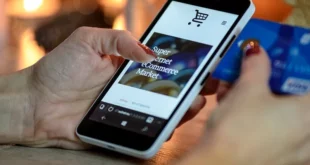Issue 35, winter/spring 2023
https://doi.org/110.70090/HNA23ACP
Scroll down for Arabic abstract.
Deceptive reviews are increasingly prevalent online. Considering existing literature, there are not sufficient research studies that seek to understand the role of deceptive product reviews in affecting acts of online purchasing in the Arab world. This paper attempts to investigate the perception of university youth toward deceptive online product reviews and their impact on purchasing intentions, as well as the reputational impact on the companies that offer the products and websites that carry deceptive reviews. The study followed an approach devoted to monitoring the attitudes of university youth toward review credibility through a questionnaire. Participants were requested to read reviews of two familiar items; the iPhone and a hotel. One symbolized a product, while the other denoted an experience. Participants were requested to imagine buying a mobile phone and booking a hotel in light of a range of reviews adequately perceived before moving on to answer the questions raised. The sample size was 400, representing three universities. The study found that university youth were unable to recognize fallacious reviews. Hence, there was an impact on their purchasing intentions, besides having a recognizable effect on the reputation of brands and review sites. This article is beneficial to inform youth about the importance of critical decision making in cases of fallacious information. The study also represented a reference for marketing agents to choose appropriate techniques for effective advertising. Moreover, it supports the development of online review mechanisms, particularly for authorized Saudi bodies in charge of electronic commerce regulations.
إدراك الشباب الجامعي لمراجعات المنتجات المضللة عبر الإنترنت وتأثيرها على نواياهم الشرائية: دراسة مسحية
الملخص
تسعى الدراسة لرصد إدراك الشباب الجامعي لمراجعات المنتجات المضللة عبر الإنترنت وتأثيرها على نواياهم الشرائية، وعلى سمعة الشركة التي تقدم المنتجات وعلى المواقع نفسها التي تستضيف المراجعات المضللة. وقام الباحثون في الدراسة باتباع أسلوب جديد يقوم على رصد اتجاهات الشباب الجامعي نحو مصداقية المراجعات بشكل عام، ثم توجيه المبحوثين لقراءة مراجعات لمنتجين؛ هما جوال آيفون وفندق، بوصفهما منتجين مألوفين للشباب، أحدهما خدمة والآخر سلعة، وأحدهما يقوم شراؤه على أساس سمات المنتج والآخر على الخبرة، ثم دعونا الشباب لتخيل قيامهم بشراء الجوال وحجز الفندق في ضوء المراجعات التي تمت قراءتها، وإكمال الإجابة عن الاستبيان، وبلغ حجم العينة 400 مفردة في ثلاث جامعات، وتوصلت الدراسة إلى عدم قدرة الشباب الجامعي على تمييز المراجعات المضللة، ووجود تأثير لها على نواياهم الشرائية وعلى سمعة الماركات ومواقع المراجعات. وهذه الورقة مفيدة للشباب في تنبيههم على ضرورة اتخاذ قرارات أكثر عقلانية في مواجهة المعلومات المضللة، ولها أهمية مرجعية للمسوقين؛ لاختيار طرق معقولة في ترويج المنتجات في مواقف محددة، والمساعدة في تحسين آلية الإشراف على المراجعات عبر الإنترنت من قبل الهيئات المعنية بتنظيم التجارة الإلكترونية في المملكة العربية السعودية.
 Arab Media & Society The Arab Media Hub
Arab Media & Society The Arab Media Hub





